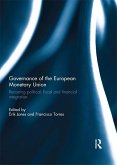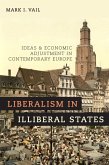Neoliberal economic theories are powerful because their domestic translators make them go local, hybridizing global scripts with local ideas. This does not mean that all local translations shape policy, however. External constraints and translators' access to cohesive policy institutions filter what kind of neoliberal hybrids become policy reality. By comparing the moderate neoliberalism that prevails in Spain with the more radical one that shapes policy thinking in Romania,
Ruling Ideas explains why neoliberal hybrids take the forms that they do and how they survive crises. Cornel Ban contributes to the literature by showing that these different varieties of neoliberalism depend on what competing ideas are available locally, on the networks of actors who serve as the local advocates of neoliberalism, and on their vulnerability to external coercion.
Ruling Ideas covers an extended historical period, starting with the Franco period in Spain and the Ceausescu period in Romania, discusses the economic integration of these countries into the EU, and continues through Europe's Great Recession and the European debt crisis. The broad historical coverage enables a careful analysis of how neoliberalism rules in times of stability and crisis and under different political systems.
Dieser Download kann aus rechtlichen Gründen nur mit Rechnungsadresse in A, B, BG, CY, CZ, D, DK, EW, E, FIN, F, GR, HR, H, IRL, I, LT, L, LR, M, NL, PL, P, R, S, SLO, SK ausgeliefert werden.









